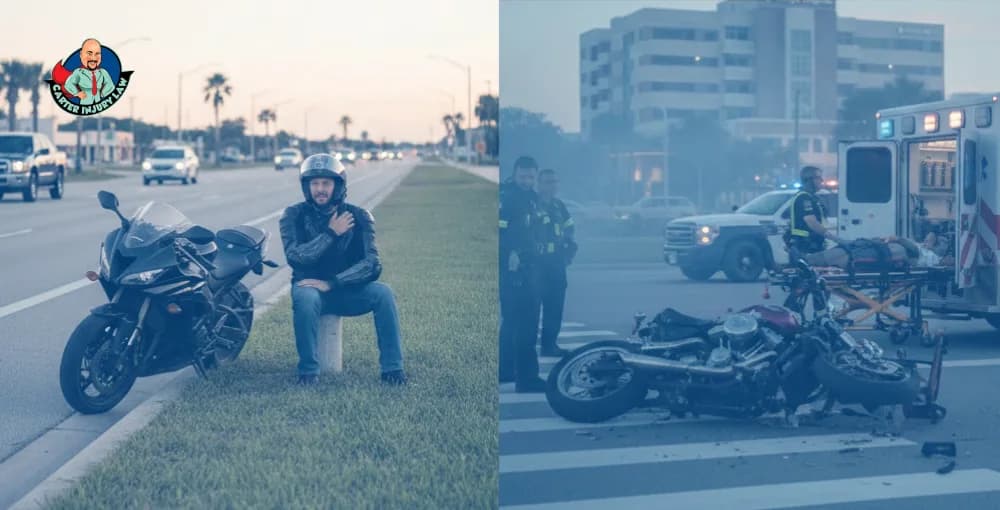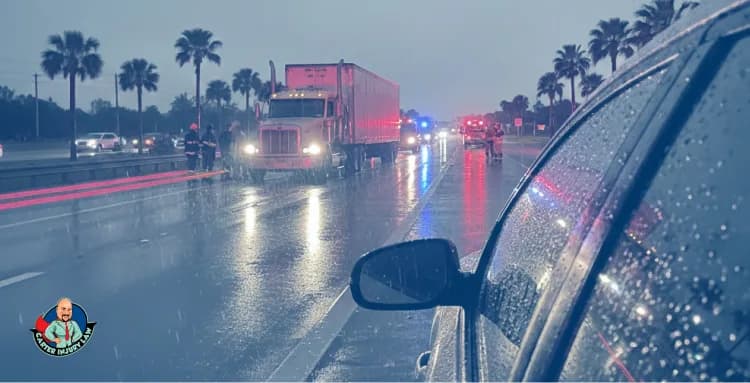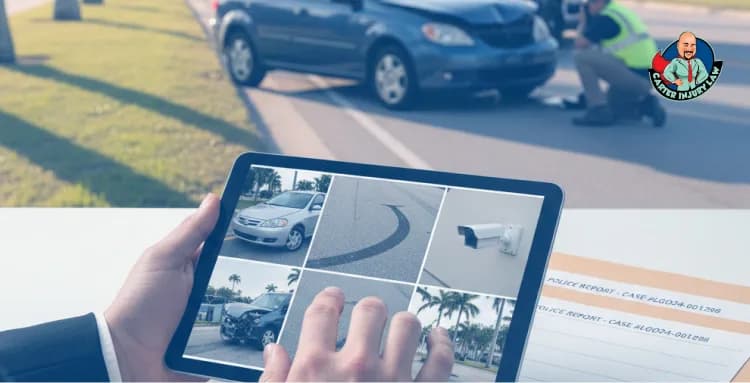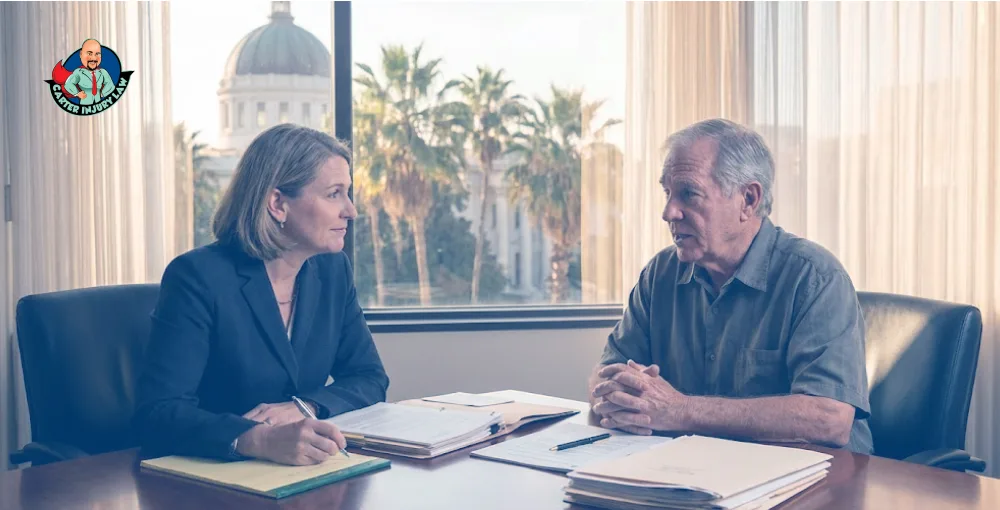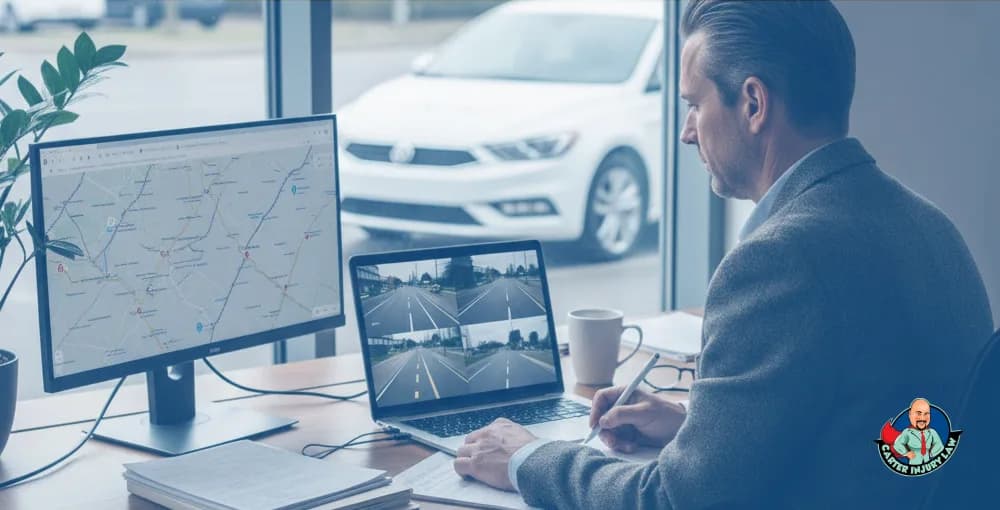I’ve represented plenty of clients who thought renting an RV in Florida would be the start of a carefree adventure. They imagined sunsets on the Gulf Coast, campfires under the stars, maybe a long drive to the Keys. What they never pictured was the nightmare that can unfold when something goes wrong on the road.
I've seen families stuck out there after their rental car broke down, and they were miles away from any help. I’ve handled cases where an accident turned into a legal tug-of-war over who should pay. The contracts renters sign often hide more traps than protections, and when disaster strikes, the finger-pointing begins.
The question is simple enough on the surface, when an RV rental ends in disaster, who is actually responsible? The answer is anything but simple.
(1) The Hidden Dangers Behind Every Rental Agreement
I’ve lost count of how many people have sat across from me, shaking their heads at the fine print they never bothered to read. Most renters see the RV keys and think freedom, not liability. The truth is, those contracts are written to protect the rental company first and you second.
I've come across some agreements that make renters accountable for damage, even if it was caused by a storm that hit the campground. I've seen situations where renters end up getting charged a ton of money for "interior damage" that they insist was already there when they moved in. Some contracts even shift the cost of mechanical failures onto the renter, no matter how unfair that seems.
The problem is, when things fall apart, those words in black and white come back like a hammer. That’s when I step in, to show the court or the insurance company that responsibility can’t just be pushed off on the renter.
And this is where the story gets even messier, because the biggest disputes usually begin with what happens on the road itself.
(2) When Accidents Happen, Who Really Pays?
Accidents on the road are the turning point in most RV rental disputes. A careless lane change, a tire blowout, or a sudden brake failure can transform a vacation into months of medical bills and legal arguments.
In Florida, the driver is almost always the first person blamed. If you rented the RV, chances are the company will point straight at you, regardless of what actually caused the crash.
However, that doesn’t mean the renter is always at fault. If an accident traces back to poor maintenance, the rental company may carry the blame. I’ve fought cases where bald tires or faulty brakes were ignored, and it was only a matter of time before someone got hurt.
And then there are the situations no one expects. A manufacturer defect, a hidden flaw, a piece of equipment that was never safe in the first place. When those truths surface, liability shifts away from the driver and onto the company or manufacturer who cut corners.
Accidents are just the start, though. The disputes often deepen when the RV itself starts to fail in ways renters couldn’t have predicted. That’s where the real battles over negligence begin.
(3) The Line Rental Companies Don’t Want You to See
I’ve handled cases where the real danger wasn’t the driver, but the RV itself. Engines that overheated on the highway, air conditioning units that sparked fires, slide-outs that jammed and trapped families inside. These weren’t accidents caused by carelessness. They were the result of someone renting out a vehicle that should never have been on the road.
When a company knows about a problem and rents the RV anyway, that’s negligence. And negligence is the one thing they can’t escape, no matter how tightly their contracts are written.
The challenge for renters is proving what went wrong. Rental companies rarely hand over maintenance records without a fight, and by the time I get involved, the RV has often disappeared back into their fleet. That’s why documenting everything, from strange noises to leaking fluids, becomes the renter’s strongest defense.
However, the real surprises often happen once you’re inside the RV, where the comforts of home can turn into hidden hazards.
(4) What You Think You’re Covered For vs. What You Actually Are
Insurance is where most renters get their harshest wake-up call. They sign up for coverage thinking every disaster will be handled, only to find out the policy was full of exceptions.
Most RV rental insurance doesn’t cover interior damage, lost personal property, or “acts of God” like hurricanes. Yet those are the very events that leave people paying out of pocket.
I've come across some policies where renters have to cover the first few thousand bucks before the insurance actually starts helping out. I’ve seen others that denied coverage outright because the renter didn’t report the incident within 24 hours. The fine print is written to protect insurance companies, not families.
That’s why I tell clients to never assume. Before the trip even begins, they need to know what’s covered, what isn’t, and what happens if disaster strikes in a way no one anticipated.
And when those surprises come to light, that’s where my role shifts from explaining the fine print to fighting back against the companies hiding behind it.
(5) What’s the Statute of Limitations
One of the biggest mistakes I see is people assuming they have all the time in the world to make a claim after an RV disaster. Florida law sets strict deadlines, and once they pass, your case can be gone before you even start.
For most personal injury claims, including those arising from RV accidents, you generally have 2 years from the date of the incident to file a lawsuit. This timeframe was reduced from four years in March 2023 under new legislation. It's crucial to act swiftly, as waiting too long can result in the court dismissing your case, regardless of its merits.
For cases involving breach of written contracts, such as disputes over rental agreements, the statute of limitations is five years. This means you have five years from the date of the breach to initiate legal action. I've had clients call me weeks too late, frustrated because the clock had already run out. That's why I always tell people to act quickly, document everything, and reach out for legal guidance immediately.
(6) How I Protect My Clients When Things Go Wrong
When renters reach out to me after an RV disaster, they often feel totally overwhelmed. They’ve been handed bills they don’t understand, blamed for damage they didn’t cause, or pressured into paying for repairs that were never their responsibility. That’s where my work begins.
The first step is cutting through the noise. I dig into contracts, maintenance records, and insurance policies to find the weak spots companies hope no one notices.
The second step is shifting the burden back where it belongs. If a rental company ignored safety, if an insurance company tried to dodge coverage, or if a manufacturer sold a defective RV, I make sure the responsibility lands in their lap, not on my client’s shoulders.
And here’s the part most people don’t expect, my clients never pay me upfront. We work on contingency, which means I only get paid when you win. That way, the fight for justice doesn’t come with another financial burden.
Your trip was meant to be all about making good memories, not dealing with legal stuff. Let me handle the legal battle so you can just focus on moving on.
Call Carter Injury Law today, and let’s make sure the responsibility lands where it should.




